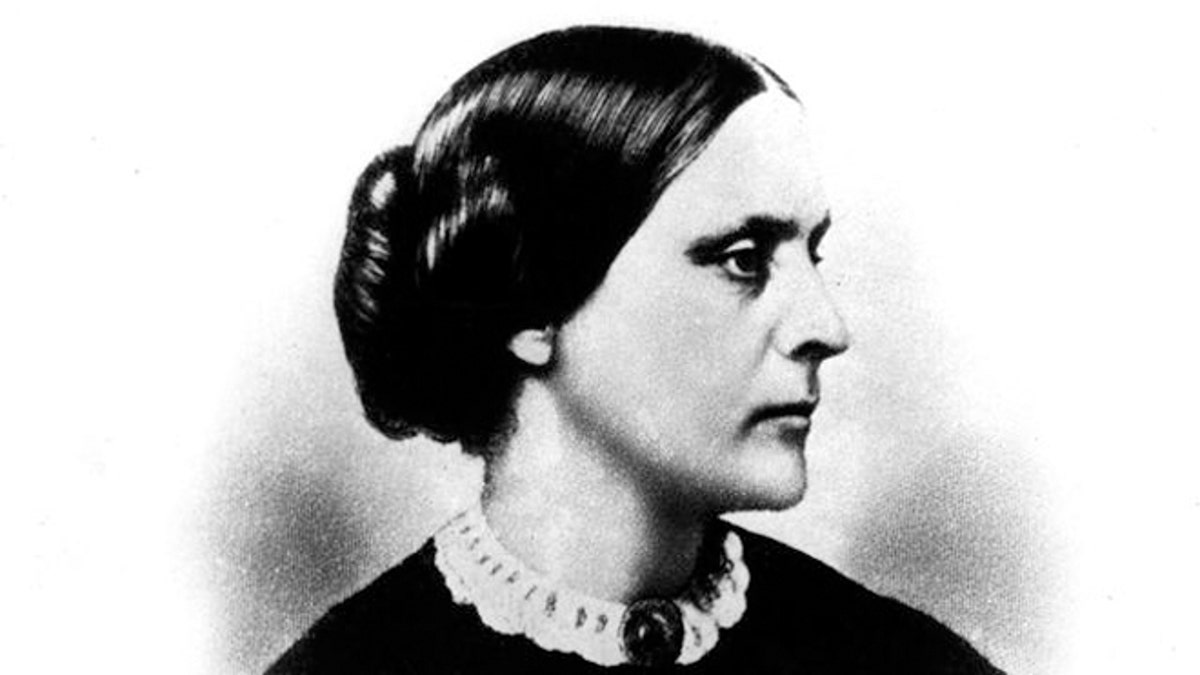
Susan B. Anthony (AP)
What would Anthony have to say about the progress American women have made since 1920?
On Sunday, February 15, five American states — Wisconsin, Florida, West Virginia, New York and California — will officially celebrate the birthday of an American hero: women’s rights activist Susan B. Anthony.
This should be a national holiday.
A second American revolution began in 1840, when Anthony’s colleagues, Lucretia Mott and Elizabeth Cady Stanton, were turned away and not allowed to speak against slavery at the World Anti-Slavery Convention in London — because they were women. In 1848, Anthony, Mott, Stanton and others held a historic meeting in Seneca Falls, N.Y., and issued a Declaration of Rights and Sentiments that spelled out women’s utter disenfranchisement.
What would Anthony have to say about the progress American women have made since 1920?
Anthony, Stanton and the American suffragist movement fought for 60 years to get women the right to vote. Anthony kept fighting until she died in 1906. The 19th Amendment was passed in 1919 and ratified in 1920.
When Anthony began the struggle for women’s equality, married women had to hand over their wages to their husbands. Their inherited property and their children belonged to their husbands, as well. Unwanted wives were sometimes gotten rid of by being locked away in mental asylums. Women could not attend college, law or medical school. Only single women could enter into contracts. Women had no political “voice” in the matters that related to their own destiny.
What would Anthony have to say about the progress American women have made since 1920?
Women now account for a third of the nation’s lawyers and doctors. They have entered the military and the labor force in significant numbers, including in jobs that were traditionally “for men.” Women are now scientists, finance experts, programmers, chefs, stockbrokers, computer wizards, racecar drivers, electricians, basketball players, etc.
Since 1917, 313 women have served as U.S. senators, representatives and as non-voting delegates.
In 1972, New York Rep. Shirley Chisholm ran for the Democratic nomination for president. Two women — Geraldine Ferraro in 1984 and Sarah Palin in 2008 — have been vice presidential candidates. Nancy Pelosi has been speaker of the House. The U.S. Cabinet has had 31 female officials, including three secretaries of state, Madeleine Albright, Condoleezza Rice and Hillary Clinton; an attorney general, Janet Reno; a secretary of transportation and of labor, Elizabeth Dole; and a secretary of homeland security, Janet Napolitano.
Anthony would be impressed that there have been 44 women astronauts, a good number of CEOs, and even sports announcers!
Perhaps she would be disappointed that so few women vote in their own best interests.
For 75 years, a portrait monument of Anthony, Mott and Stanton remained buried in the basement of the White House. After a campaign, it was finally unveiled in the Rotunda in 1997. We should really be honoring all three of these great American foremothers.
In 2008, Sen. Barack Obama called for a national holiday to honor Cesar Chavez, saying: “Chavez left a legacy as an educator, environmentalist and a civil rights leader.” In March 2011, President Obama reiterated his support for the cause: “Cesar Chavez’s legacy provides lessons from which all Americans can learn.” On March 28, 2014, President Obama used his authority to proclaim March 31 Cesar Chavez Day.
In 2011, Rep. Carolyn Maloney of New York introduced the “Susan B. Anthony Birthday Act” (H.R. #655). The bill was not enacted.
The time has come to do so.








































